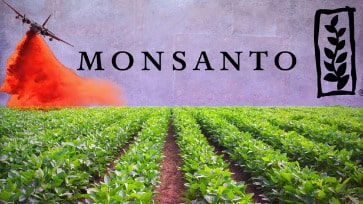Despite legal threats from the U.S. government, Mexico’s government plans to go forward with a partial ban on imports of genetically modified corn.
On Wednesday Mexico’s National Council for Science and Technology (CONACYT) hosted an online webinar laying out the science behind the nation’s decision to ban imports of genetically modified corn. The webinar itself is a response to repeated claims by the U.S. government that Mexico’s GM corn ban is not based on science.
The webinar was first reported on by Food Tank.
CONACYT, the Mexican government’s senior science department, organized several presentations from Mexican scientists detailing the health concerns surrounding GM food and the herbicide glyphosate which is typically sprayed on GM corn produced by Bayer, formerly Monsanto.
For the Mexican farmers who have been cultivating corn for an estimated 8,000 years, GM corn represents a significant threat. GM corn can spread via the birds, bees, and wind, resulting in cross-pollination between traditional crops and GM versions.
During his presentation, Alejandro Espinoza Calderón, director of Mexico’s biosecurity agency Intersecretarial Commission for Biosafety and Genetically Modified Organisms (Cibiogem), noted that,
“Mexico has a rich store of exceptionally healthy varieties of corn. It is alarming to find that 90 percent of tortillas were shown to have traces of both glyphosate and transgenics. The biosecurity of Mexico is of utmost importance.”
National University biologist Ana Laura Wegier Briuolo, a biologist at Mexico’s National University made it clear that “without healthy corn we cannot have healthy people.”
The webinar also focused on the dangers associated with glyphosate. In recent years Monsanto (and now Bayer) have faced dozens of lawsuits related to individuals developing cancer after heavy use of glyphosate.
Full article: Mexico Battles U.S. Government and “Mr. Monsanto” to Protect Food Sovereignty
